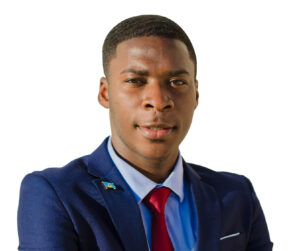Many dismiss the focus of “wokeism” or scoff at global movements like Black Lives Matter in favour of economic concerns, as if “brokeism” or “All Lives Matter” negates the reality of racial issues in the Caribbean. They insist race is irrelevant here, believing social and economic struggles exist in separate compartments.
These are often the same people who claim that racism cannot exist in our predominantly Black society. How can we be racist, they argue, when most of us are of African descent? They proudly declare ours a racially harmonious society, where Black, White, Indian, Chinese, and others coexist peacefully, echoing Jamaica’s motto, Out of Many, One People. It’s a vision of homogeneity, an imagined community, as Benedict Anderson would call it, built on the legacy of enslavement, indentureship, and migration.
I, too, might have swallowed this myth of racial harmony uncritically had I not heard the rhetoric of certain political elites, whose words reflect the unspoken biases of those they represent. Recent remarks by former senator Timothy Mangal lay bare the fallacy of a raceless society. Comparing the constituencies of Castries South East and Castries East, he described one essentially as white and pristine and the other as black like Prime Minister Philip J. Pierre.
His defence was even more revealing. Mangal claimed he was merely echoing Pierre’s own self-identification as the “little Black boy from Castries East”. But this excuse rings hollow. The comparison could have been made without invoking skin colour, by pointing to policy failures, leadership gaps, or empirical data. He could have said, “Yellow is the colour of progress; red is not.”
But that wasn’t the point. The intent was to stoke division, to appeal to the basest instincts of an audience that laughed along. His words reinforced an old, insidious trope: white symbolises success, beauty and respectability, while black signifies failure, shame and stagnation.
Why make such a racially charged comparison? And why has his party leadership not condemned it outright? Their silence, and the laughter that greeted Mangal’s remarks, speak volumes.
This isn’t new. Recall the 2021 claim that Philip J. Pierre should never lead our country because he is a black man and only a white man could lead us. Or the coded language of “ti culeh”, the flogging references, the “house slave” taunts – all wielded in a nation of descendants of the enslaved. These statements weaponise blackness as a mark of inferiority while exalting whiteness as the standard of worth.
Some may argue this isn’t racism but colourism—Black people discriminating among themselves based on skin tone. But let’s call it what it is: racism. The hierarchy is clear; the closer to whiteness—to Castries South East, if you will—the more valued you are.
And it’s not confined to politics. Consider our beauty standards: “She’s pretty for a Black girl,” “Your hair is so hard and Black,” the fetishisation of light skin, the derogatory “shabin”. Ask anyone to describe a “successful” Saint Lucian businessperson—who comes to mind?
Even our tourism-dependent economy reinforces this. We’re told to mute discussions on race to avoid offending white visitors, to keep crime low for the tourists, as if our own safety and dignity shouldn’t come first.
We must confront this self-hatred. The myth of racial harmony crumbles when we still equate blackness with failure. Chronixx’s Black Is Beautiful rebukes a world where black is synonymous with bad: “They never told us that black is beautiful. I will sing you a black song because you need to hear about beautiful black things, because most times we hear about black, we hear about black magic and black witches, black book, blacklist, Black Friday, black market.”
When will we reclaim it as a colour of pride, resilience and excellence?
Even after 46 years of independence, we have deep-seated racial prejudices that younger generations of educated Saint Lucians must jettison if we are to be truly a raceless society.
True progress demands honesty. We need education, the decolonisation of our minds, celebrating Black achievement, and dismantling the lie that whiteness is the measure of success. Only then can we move beyond the myth of a raceless society, and build one that is truly equitable.
 Rahym R. Augustin-Joseph is a 24-year-old Saint Lucian pursuing his Bachelor of Laws at UWI Cave Hill, after earning first-class honours in political science and law. The current Commonwealth Caribbean Rhodes Scholar and a former UWI valedictorian, he is dedicated to using law and politics to transform Saint Lucia and the wider Caribbean.
Rahym R. Augustin-Joseph is a 24-year-old Saint Lucian pursuing his Bachelor of Laws at UWI Cave Hill, after earning first-class honours in political science and law. The current Commonwealth Caribbean Rhodes Scholar and a former UWI valedictorian, he is dedicated to using law and politics to transform Saint Lucia and the wider Caribbean.




